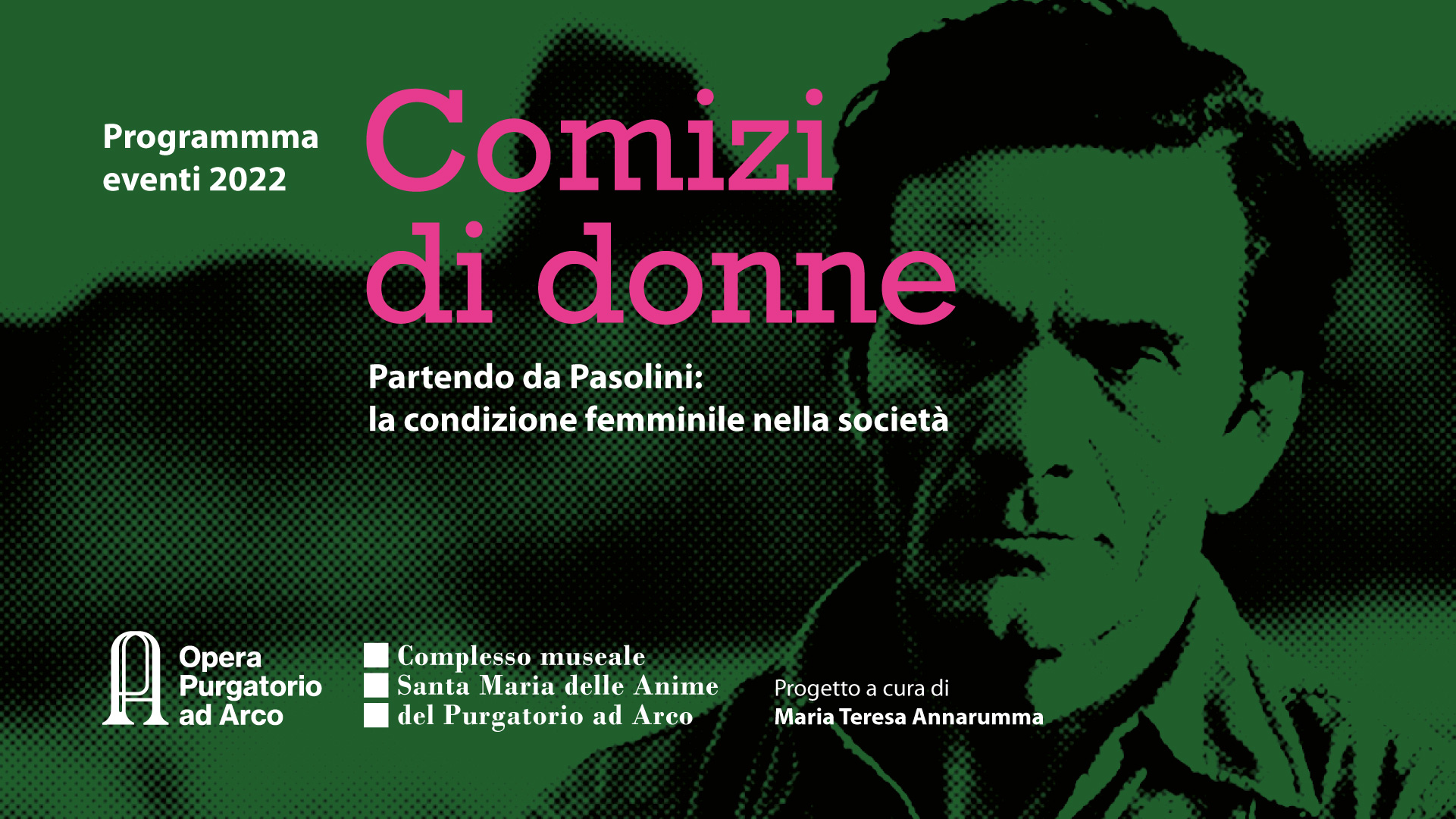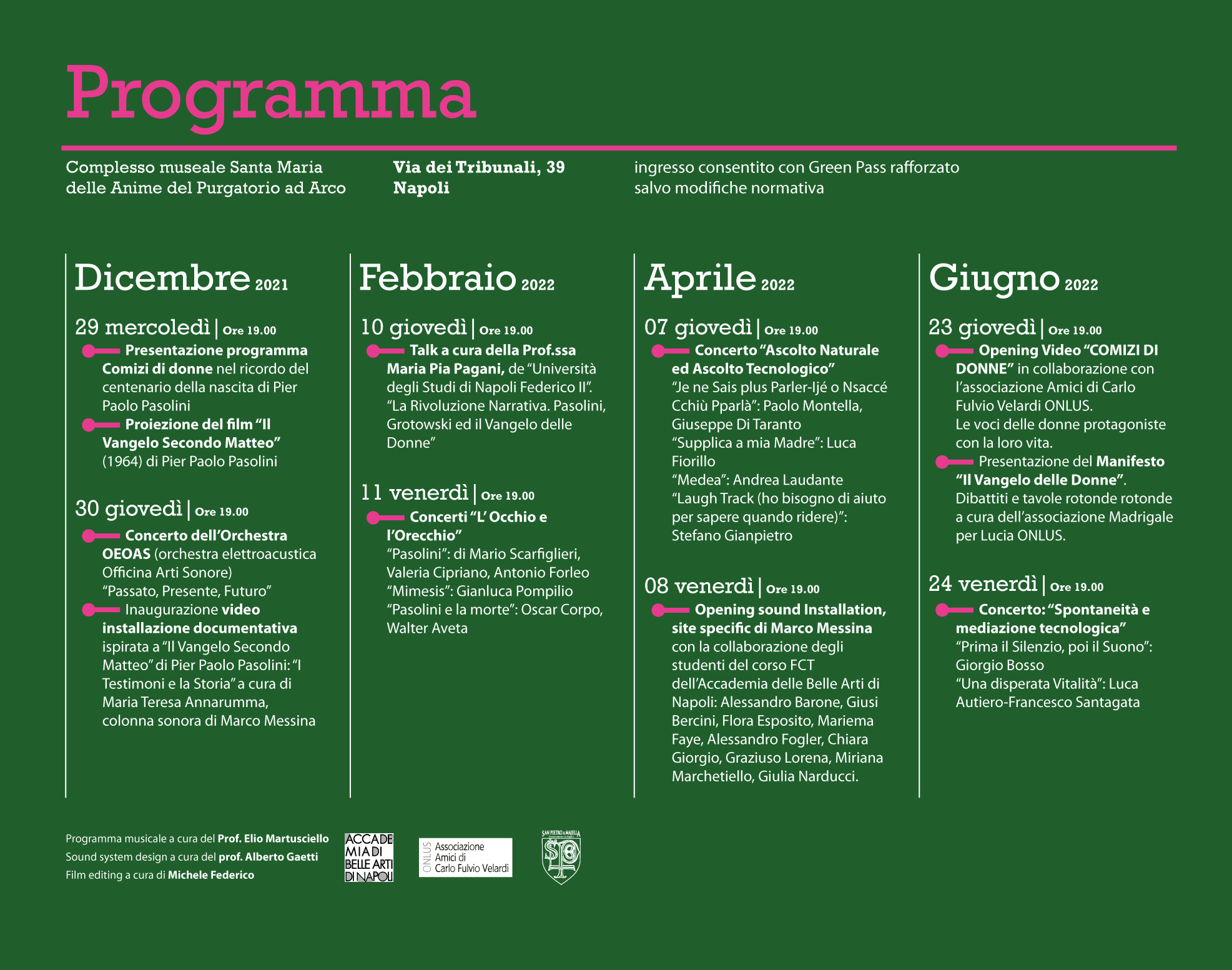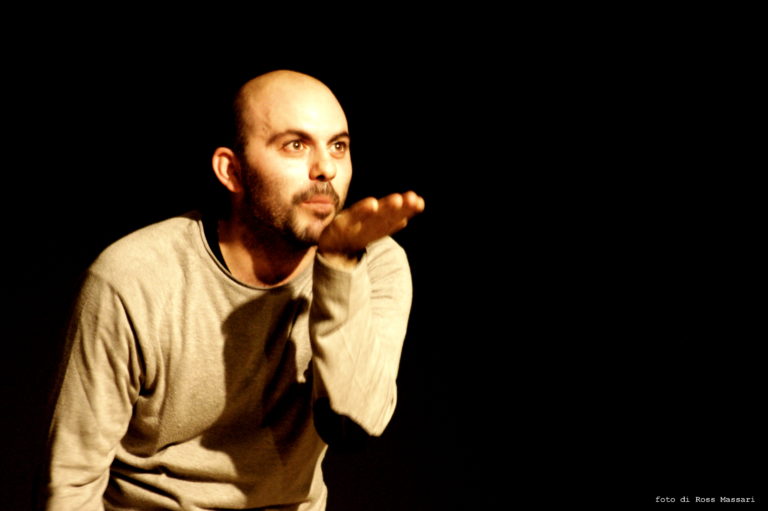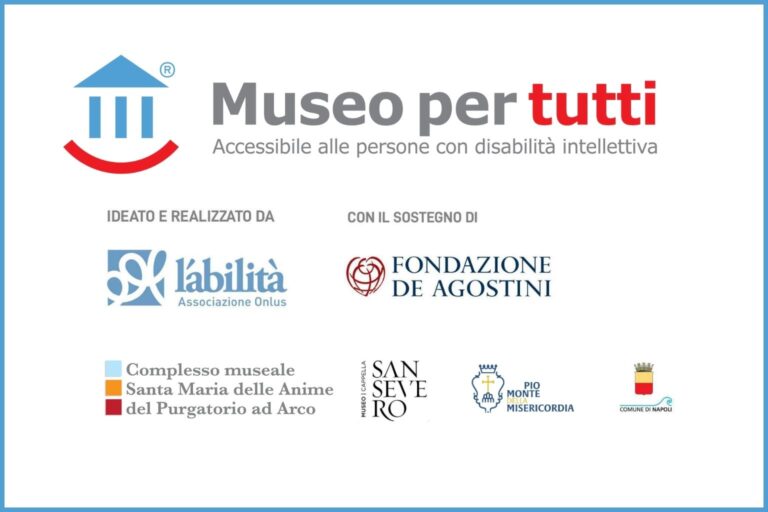COMIZI DI DONNE
The female condition and the Pasolini’s approach to social issues
Progetto curated by Maria Teresa Annarumma
Opera Pia Purgatorio ad Arco O.N.L.U.S.
Complesso Museale Santa Maria delle Anime del Purgatorio ad Arco
With the partecipation:
Academy of Fine Art, Naples
Academy of Music “San Pietro a Majella”, Naples
Association “Madrigale per Lucia” O.N.L.U.S.
Association “Amici di Carlo Fulvio Velardi” O.N.L.U.S.
Music Program curated by prof. Elio Martusciello and prof Alberto Gaetti
2022 will see the celebration of the 100th anniversary of Pier Paolo Pasolini’s birth. His work is the starting point of a six months project. The COMIZI DI DONNE will begin from an understanding of history that significantly relates to Pasolini’s ideas. It will come to look at contemporary life and to the female condition in Naples and in the world from a different perspective. It proposes a revolutionary consciousness that links women through history and argues for a new social contract (“social contract” refers to a concordance in society regarding the relative responsibilities and rights of its citizens) which may finally acknowledge the equity that has been for so long promised and for which so many have struggled: this is the “coming community” in the making of which we are a part.
The project takes place in the 2021/22 program of the Complesso Museale di Santa Maria del Purgatorio ad Arco in the third year of the pandemic. It will speak for an experience of the world that has been hidden in clear sight, a part of which many of us have known in our own lives, and for the possibility of a way forward.
We will be supported, to begin with, by Pasolini’s essential social and political choice based on his constant struggle to come to what he believed to be the truth in human being. And his belief that to see this true being it was necessary to give attention to the hidden part of society, the one which carries on the history, the deep history, of the world, but which is also the part of society pushed to its edge and which most suffers under the weight (social and economic) of the consequences of the social changes brought about by liberalism.
The project is driven by the belief that this world and Naples need a Copernican revolution like that towards which Pasolini was reaching in his work and in his famous “Comizi d’Amore” (1965). A revolution prefigured in his understanding that to build up a powerfully effective awareness of the world and of its history it was necessary to challenge the dominant narratives of mediated authorship, and to show that there were other stories, to let the people become the authors of their own narration through their account of their lives. Complex lives in which there is real strength, as well as contradictions. These after all are the protagonists of family and society and their stories, as well the lives of all of us.
This will be the preamble to the making and showing of the activist video installation “Comizi di Donne” in which the artist-protagonists will be Neapolitan women speaking of their everyday lives, echoing the voices of women through a turbulent history. In this we will attempt, as others before us have tried to do, to carry through the promise, long overlooked and of which there was a premonition in Pasolini’s work, the promise which is waiting for its true voice to be released: the testament of women, women who are still, even into the third decade of the twenty first century, too often trapped in the part of the hidden world which carries a social and economic weight not yet valued.
In the meantime, a cycle of four concerts of electronic music made in collaboration with the Academy of music San Pietro a Majella in Naples, curated by prof Elio Martusciello and prof. Alberto Gaetti, will focus on the language and body and the way in which is translated in the protagonist of the Pasolini cinema.
Maria Teresa Annarumma





